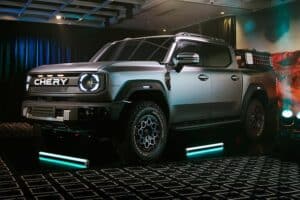"The techniques we’ve used to reduce engine capacities will no longer allow us to meet emissions standards".

Europe’s incoming new emissions regulations will not only result in the end of normally aspirated engines, but also downsizing.
In making the comments at a recent media briefing in Australia, Porsche’s 911/718 Boxster/Cayman line Head, Frank-Steffen Walliser, stated that the regulations, which come into being in 2026, will not only be the toughest yet, but also result in big changes as “we will see bigger displacement [engines] coming back again”.
“I expect 20 per cent more displacement on average for these EU7-capable engines. A lot of manufacturers will jump from four to six, from six to eight [cylinders]. The regulations are completely counterproductive to CO2 regulations, so this will go up. You cannot fulfil all the standards without spending fuel. It sounds crazy but it’s a technical fact at the moment,” motoring.com.au quoted Walliser as saying.
“When I’m talking bigger, I’m talking a factor of three to four times more, so there will be a small chemical industrial factory in the car to really control this. This means all-new engines and especially for the 911 this gets really, really difficult. But we will never give up. Whatever it takes, we will do it. We want to keep six-cylinders, for sure, but we will have to overwork it. We will have to make a new engine. That’s the fact. Again”.
In an extensive report made by Reuters four years ago, a number of automakers were said to have been considering scrapping small capacity engines in favour of upsized units due an apparent loss of efficiency, build-up of heat, release of fine carbon monoxide particles and in the case of diesel engines, NOx levels more than 15 times required.
What’s more, the report also found that while the engines were capable of passing lab-based tests with ease, their compliance with real-world figures was proving much more of a struggle due in part to their size.
“The techniques we’ve used to reduce engine capacities will no longer allow us to meet emissions standards. We’re reaching the limits of downsizing,” former Nissan-Renault and now PSA Powertrain boss, Alain Raposo, confirmed to the news agency at that year’s Paris Motor Show.
Remarking about the imminent departure of normally aspirated engines, Walliser said that while atmospheric engines are likely to continue in markets where emissions are less strict than in Europe, “at the moment, we only see a turbo solution”.
“It [normal-aspiration] could work in other parts of the world, as Australia is close to the US regulations. Technically, yes. If you offered something different. But this [problem] is market size, investment, volume. There will come a day, within the next 10 years, when we have to say ‘Now this is the last of its kind,” he said.
For more news your way, download The Citizen’s app for iOS and Android.
Support Local Journalism
Add The Citizen as a Preferred Source on Google and follow us on Google News to see more of our trusted reporting in Google News and Top Stories.






